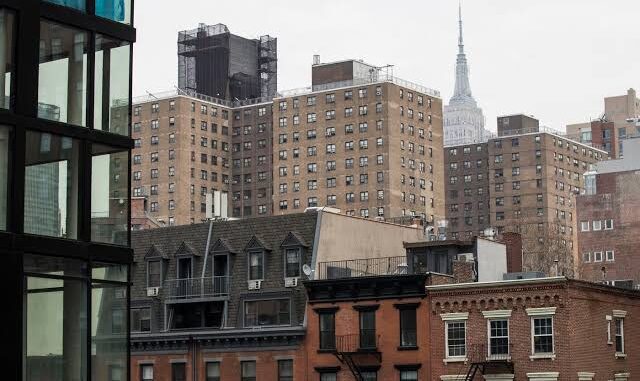
New York City’s housing crisis has intensified in 2025, marked by escalating rents, a severe shortage of affordable housing, and significant policy interventions aimed at addressing these challenges. The city’s rental market has reached unprecedented levels, with the median monthly rent for a one-bedroom apartment in Manhattan surpassing $4,400, and two-bedroom units exceeding $5,000. This surge is attributed to a persistent housing shortage, evidenced by a vacancy rate of just 1.4% in 2023—the lowest since 1968. Notably, for units renting below $1,650, the vacancy rate plummeted to less than 1%, underscoring the scarcity of affordable options.
In response to these pressing issues, Governor Kathy Hochul has unveiled a comprehensive plan to enhance housing affordability. Central to her proposal is a $100 million investment to bolster the Pro-Housing Community Program, aimed at supporting critical housing infrastructure projects. Additionally, the plan includes the creation of the state’s first revolving loan fund to stimulate mixed-income rental development outside New York City. To combat rent-price fixing, Governor Hochul is advocating for legislation targeting collusion among landlords, seeking to ensure fairer rental practices across the state.
Mayor Eric Adams has also announced an ambitious initiative, dubbed “The Manhattan Plan,” which aims to construct 100,000 new housing units in Manhattan over the next decade. This endeavor is envisioned to be equivalent to adding another Upper West Side in terms of housing capacity. The plan focuses on rezoning efforts, such as the Midtown South rezoning, to facilitate the development of new housing and address the city’s chronic housing shortage.
In a move to influence housing policy, Airbnb has launched a Super PAC named “Keeping New York Affordable,” with a $5 million budget dedicated to supporting city and state election candidates who favor short-term rentals. This initiative is a direct response to stringent home-sharing regulations imposed in 2023, which required hosts to be present during guest stays, leading to the removal of thousands of Airbnb listings and a subsequent increase in traditional hotel rates. Airbnb is backing a bill introduced by Council Member Farah Louis to restore short-term rental rights, despite opposition from the Hotel Trades Council.
On the development front, Related Companies is nearing a deal to revive the Pacific Park project in Brooklyn, which had stalled after the previous developer defaulted on loans. If successful, Related plans to resume construction by late 2025, pending approval from the Metropolitan Transportation Authority. Community leaders, however, advocate for involving multiple developers to enhance accountability and public input, reflecting ongoing debates about the best approaches to urban development.
Governor Hochul has also proposed new rules to limit the acquisition of residential properties by private equity firms and hedge funds. The proposed legislation would enforce a 75-day waiting period before large investment firms can bid on new homes and would remove certain tax benefits when these companies purchase houses. This initiative aims to provide more affordable housing options for everyday homebuyers, addressing concerns that large investors are driving up property costs and reducing the supply of homes available to individual buyers.
Despite these challenges, certain neighborhoods are experiencing growth and increased interest. Ridgewood in Queens has been named NYC’s top neighborhood to watch for the second consecutive year, attracting renters and buyers with a blend of historic charm and modern amenities. The area saw a 13.2% increase in searches, an 8.3% rise in median rent to $3,250, and an 8.4% jump in median home prices to around $1.3 million. Other neighborhoods in Brooklyn and Queens, such as Greenwood Heights and Long Island City, are also gaining popularity, reflecting shifting housing patterns within the city.
As New York City navigates 2025, the convergence of escalating housing costs, policy reforms, and urban development projects underscores the complexity of addressing the housing crisis. The effectiveness of these initiatives will significantly impact the city’s residents and its future trajectory, as policymakers, developers, and communities strive to create a more equitable and sustainable housing landscape.
Be the first to comment